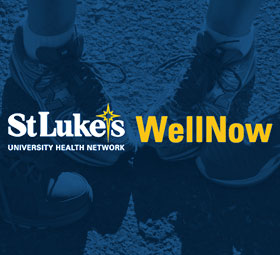Using Food as Lifestyle Medicine
Using Food as Lifestyle Medicine
By Vicki Shanta Retelny, RDN, LDN
This science-backed, holistic approach to disease prevention and management is making big strides in the dietetics world.
The focus on lifestyle choices to prevent and treat chronic diseases, such as obesity, type 2 diabetes, CVD, and multiple types of cancer, has gained momentum in the past decade. And rightly so, as the leading causes of death among adults in the United States are related to lifestyle, including tobacco use, poor diet, physical inactivity, and excessive alcohol consumption.1
The World Health Organization estimates that, by 2020, two-thirds of all diseases will be the result of lifestyle choices.2 Nutrition, physical activity, and obesity, as well as substance abuse and tobacco, are included among the Healthy People 2020 12 Leading Health Indicators, a set of high-priority public health issues in the United States.3
As a result, there’s a strong push toward taking a lifestyle medicine approach to health care, and nutrition education plays a primary role in this movement. With physicians traditionally receiving little or no training in nutrition science and reluctant to counsel patients on lifestyle behaviors that many fail to practice,4 the time is ripe for a more formal educational framework around lifestyle medicine.
What is lifestyle medicine? According to one definition from the American College of Lifestyle Medicine (ACLM), the flagship medical organization in the lifestyle medicine movement founded in 2004, “Lifestyle Medicine is the therapeutic use of evidence-based lifestyle interventions to treat and prevent lifestyle-related diseases in a clinical setting. It empowers individuals with the knowledge and life skills to make effective behavior changes that address the underlying causes of disease.”5
The following are the primary features of ACLM’s Standards of Lifestyle Medicine5:
• It emphasizes promoting behavior changes that allow the body to heal itself.
• It focuses on evidence-based optimal nutrition, stress management, and fitness prescriptions.
• Patients are active partners in their care.
• The underlying lifestyle causes of disease are treated.
• The physician/provider educates, guides, and supports patients to make behavior changes.
• Medications are used as an adjunct to therapeutic lifestyle changes.
• The patient’s home and community environment are assessed as contributing factors.
“ACLM is a galvanizing force for change,” says Susan Benigas, executive director of ACLM and cofounder of The Plantrician Project, a nonprofit organization that hosts events and provides resources and tools for medical professionals who believe in the “food as medicine” pillar of lifestyle medicine. With health care costs skyrocketing to treat conditions caused by poor lifestyle choices, Benigas believes ACLM offers a beacon of hope. “As we teeter on the brink of health care cost-induced bankruptcy, we need to take swift action to educate, equip, and empower our medical professionals and those they serve with the ‘good news’ of lifestyle medicine,” Benigas says.
ACLM, along with the American College of Preventive Medicine (ACPM), a national medical specialty society of physicians dedicated to disease prevention, health promotion, and systems-based health care improvement,6 are collaborating to fill the gap in medical education to include a foundational lifestyle medicine curriculum available online to all clinical specialties. With the belief that team-based care is an essential part of lifestyle medicine, ACPM’s Associate Executive Director Danielle Pere, MPM, sits on the Academy of Nutrition and Dietetics Primary Care Provider Advisory Board to help develop and implement strategies at the national level that will promote successful collaboration between dietitians and primary care physicians at the local level.
The Primary Care Provider Advisory Board will be presenting at ACLM’s annual meeting in May 2018 in Chicago on the importance of collaboration between dietitians and primary care providers to further individual and population health. ACPM believes lifestyle medicine is a core competency of preventive medicine and supports the continued exploration of the scientific basis, best practices, and the need for education in lifestyle medicine.7
Dietitians Are Major Players
As food and nutrition experts, dietitians play a key role in lifestyle medicine by educating other health care professionals about how food can and should be part of patient care and treatment plans and offering nutrition expertise to ensure success of treatment protocols in practice.
“In my mind, lifestyle has always been the platform for all nutrition intervention therapies I’ve recommended over my 30-year career,” says Rosanne Rust, MS, RDN, LDN, an author and communications consultant based in Meadville, Pennsylvania. “Nutrition plays a huge role in lifestyle medicine. Every diagnosis has a nutrition therapy that should accompany it,” she continues, adding that referrals to dietitians are one of the primary ways physicians can ensure results from diet therapy.
Dietitians can apply the most current scientific evidence available, which supports the consumption of whole, unprocessed or minimally processed plant foods as treatment for most of the lifestyle-related illnesses in the US population.5 RDs can make an initial nutrition assessment and provide patients questionnaires about their eating habits. They can recommend physicians order blood tests for patients to screen for serum lipids, blood glucose, and vitamin D levels. And dietitians can discuss healthful eating options with patients, develop personalized meal plans and shopping lists, and suggest they attend nutrition clinics, community garden tours, seminars, food sampling events, and cooking classes to taste and learn how to prepare healthful foods.5
Having worked within an interdisciplinary team with other health care professionals early in her career, Rust recalls the lifestyle as medicine model as “all about prevention and health education.” However, with changes in health care coverage and the fact that insurance reimbursement policies don’t always cover preventive services, including lifestyle change prescriptions, it has been challenging for providers to practice within this model. Even though the most widely accepted, well-established chronic disease practice guidelines uniformly call for lifestyle change as first-line therapy, physicians often don’t include them in their practices.8 Nevertheless, the tide is turning.
Sarah Krieger, MPH, RDN, owner of SBK Nutrition, LLC, a private nutrition consulting practice in Tampa, Florida, works with Healthy Lifestyles Tampa Bay in St. Petersburg, Florida. “I work with a psychologist and a fitness expert. The three of us are the trinity for guiding clients on their weight loss journey,” Krieger says. Healthy Lifestyles Tampa Bay offers a comprehensive treatment plan focused on nutrition, exercise, mental and emotional healing, and health. As a member of an interdisciplinary team, Krieger meets with the psychologist and fitness trainer to discuss each client’s situation and mental health status, and to determine mutual goals.
“First, I provide a thorough lifestyle assessment, which includes labs, medications, diseases, and conditions, as well as work and family life, and, of course, typical meal patterns,” Krieger explains. With motivational interviewing skills, she collaborates with her clients to establish big-picture goals and then realistic smaller goals to help guide them toward lifestyle changes. “My proudest moments as a registered dietitian nutritionist are when my clients tell me their insulin dose or oral hypoglycemic medications have been reduced or eliminated. It validates how I coach clients,” Krieger says.
Audra Wilson, RD, LDN, a clinical dietitian at Northwestern Memorial Delnor Hospital in Geneva, Illinois, works alongside a nurse who conducts patient medical reviews and an endocrinologist bariatric physician who assesses underlying conditions for weight gain and obesity. They meet and discuss each patient’s needs, level of learning ability regarding meal planning, and food tracking.
“By the time I meet with the patient, I have a lot of information and can tailor my nutrition education accordingly,” Wilson says. The interdisciplinary team approach enables them to get a well-rounded picture of the patient. “In my initial visit with patients, I assess readiness to change and where the food and nutrition knowledge deficits are,” Wilson says.
Lifestyle changes, such as tracking food intake, ridding the diet of liquid calories, and getting patients moving with regular exercise, are the first line of therapy for Wilson’s patients. “My patients are pretty compliant, as they finally feel like they’re getting knowledge from experts. It’s important that they speak to a registered dietitian,” Wilson says.
The team mindset carries over to Wilson’s one-on-one counseling sessions with patients as she discusses the lifestyle changes, provides guidance on how to incorporate them into everyday life, and allows them to determine which ones to prioritize. “There’s a mental and emotional piece to weight loss and patients have to feel like you’re on their side as a partner in the process,” Wilson says.
Nicole Eichinger, RD, LD, owner of the private practice Nutrition’s My Life in Cibolo, Texas, also helps her clients incorporate lifestyle changes into their lives. Although she’s a sole practitioner, she refers clients regularly to other experts. “When I’m working one on one with a client, I will refer to other experts based on the client’s needs,” Eichinger says. In her group work, she has experts call in to join her during counseling sessions, too. “My clients love the lifestyle approach, as they’re given concrete tools, such as daily meditation practices for stress reduction, which can improve their gut health, which allows for better absorption of nutrients,” Eichinger says.
Lifestyle homework is part of Eichinger’s counseling protocol. “Although most clients are excited about lifestyle homework, they need weekly help and accountability to remind them of why these improvements are important,” Eichinger says. She works with clients for at least six weeks to give them adequate support and encouragement to keep moving forward with lifestyle changes. “I know my expertise as a registered dietitian is food and nutrition; however, behavioral, mental, and environmental factors all play a role in achieving a healthful lifestyle. This is why having a team of experts you know and trust is important to help others achieve their healthful living goals,” Eichinger says.
Rust adds, “While we don’t have control over genetic factors, gender, age, and race, we have control over what we eat, if and how much we exercise, whether we smoke, our sleep habits, and how we handle stress. Helping patients with these controllable factors empowers them to take ownership of their health.”
— Vicki Shanta Retelny, RDN, LDN, is a nationally recognized lifestyle nutrition expert, author, speaker, and culinary and media consultant in Chicago. She’s the author of The Essential Guide to Healthy Healing Foods and Total Body Diet for Dummies. She blogs at SimpleCravingsRealFood.com.
References
1. Mokdad AH, Marks JS, Stroup DF, Gerberding JL. Actual causes of death in the United States, 2000. JAMA. 2004;291(10):1238-1245.
2. Chopra M, Galbraith S, Darnton-Hill I. A global response to a global problem: the epidemic of overnutrition. Bull World Health Organ. 2002;80(12):952-958.
3. 2020 LHI topics. HealthyPeople.gov website. https://www.healthypeople.gov/2020/leading-health-indicators/2020-LHI-Topics
4. Vickers KS, Kircher KJ, Smith MD, Petersen LR, Rasmussen NH. Health behavior counseling in primary care: provider-reported rate and confidence. Fam Med. 2007;39(10):730-735.
5. Rooke J, Gobble J, Ballard T, et al. Lifestyle medicine standards. https://www.lifestylemedicine.org/Resources/Documents/ABOUT/ACLM%20Standards_
Adopted%20Fall%202012.pdf
6. Mission. American College of Preventive Medicine website. http://www.acpm.org/page/mission
7. Lifestyle medicine initiative. American College of Preventive Medicine website. http://www.acpm.org/page/lifestylemedicine
8. Lianov L, Johnson M. Physician competencies for prescribing lifestyle medicine. JAMA. 2010;304(2):202-203.



